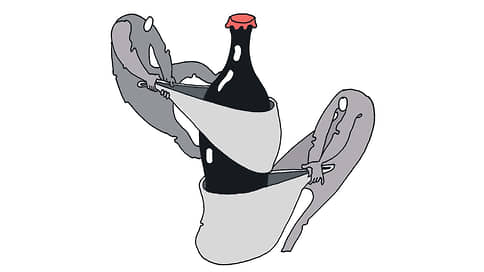Heineken will give in to gas
[ad_1]

The opportunity to take a share of the carbonated drinks market against the backdrop of the cessation of production in Russia of Coca-Cola and Pepsi interested the leaders of the beer market. So, the Russian Heineken thought about launching its own line of products with cola, orange and lemon flavors. Despite the growth in the number of new brands in the category, a free niche in the market remains. But competition is actively growing, and original drinks are imported through the parallel import mechanism and remain on store shelves.
In July-August, the Russian structure of Heineken registered a series of declarations of conformity for a line of non-alcoholic carbonated drinks, Kommersant found in the database of the Federal Accreditation Service. The products are advertised under the names Royal Cola Original, Royal Cola Zero, Tony Lemony Orange, and Tony Lemony Lemon. As follows from the description, drinks can be bottled in glass, plastic bottles and aluminum cans. Manufacturers are Russian factories Heineken. The company declined to comment.
The Dutch Heineken is the third beer producer in Russia, the portfolio of brands includes Amstel, Okhota, Three Bears, Stepan Razin and others. It operates factories in St. Petersburg, Yekaterinburg, Irkutsk, Nizhny Novgorod, Novosibirsk, Khabarovsk and Sterlitamak. Revenue in the country in 2021 increased by 12.5%, to 36.9 billion rubles.
Kommersant’s interlocutor on the market notes that Heineken has experience working with Shihan lemonades, so “an attempt to take advantage of Coca-Cola and Pepsi being washed off the shelves is logical.” With the onset of the crisis due to the military operation of the Russian Federation in Ukraine, Coca-Cola suspended work in the Russian Federation, and PepsiCo stopped the production of Pepsi, Mirinda and 7Up. Coca-Cola manufacturer Multon Partners (formerly Coca-Cola HBC) now produces carbonated drinks under the Dobry brand, and PepsiCo has expanded its Evervess and Russky Dar line. The companies did not provide comments. It is still easy to find imported (for example, Polish) Coca-Cola on the shelves of retail stores.
Meanwhile, the head office of Heineken has already announced its intention to sell Russian assets. The agreement may be concluded in the second half of the year, according to the company’s financial statements. According to Kommersant’s interlocutors, expanding the range can increase the value of the business, but rather it is a reaction to changes in the market. According to NielsenIQ, from May to July, the share of local soda brands increased from 19.8% to 25.3%, and its sales in January-August grew by 22.6% in money terms and 1.3% in volume year-on-year.
One of the founders of Famous Amazing Brands (Vanilla Flight and Anarchy) Anton Stelmakov notes that “companies that are serious about quality” usually buy concentrates from European manufacturers, now imports are possible through Turkey and Kazakhstan. According to the expert, distribution capabilities will allow Heineken to put new products on the shelves in a month, and the launch will require minimal investment. He cites the lack of an aluminum can and difficulties in supplying CO2 as complicating factors.
Aleksey Aksel, CEO of Volkovskaya Brewery, notes that beer production in the Russian Federation grew in the first half of the year against the backdrop of reduced imports, but before that the market was generally stable, and besides, “regulatory pressure is increasing” on the industry. In the 2010s, Baltika (part of the Carlsberg Group) produced its carbonated drinks. In April, the company applied to register the Crazy Cola, Crazy Orange and Crazy Lemon brands. But Baltika clarified that so far it is only about extending the rights to stamps. Oraz Durdyev, acting president of AB InBev Efes, only says that “the company is actively following trends and is looking for promising niches.”
According to Anton Stelmakov, there is room for new brands of carbonated drinks, and the composition of future leaders has not yet been determined. The Dobry brand cannot be compared in strength with Coca-Cola, he emphasizes. Although the general director of MPBK Ochakovo, Yuri Antonov, notes that the number of positions on the market is already higher than a year earlier, and the largest players are even more intensively developing the range.
[ad_2]
Source link





